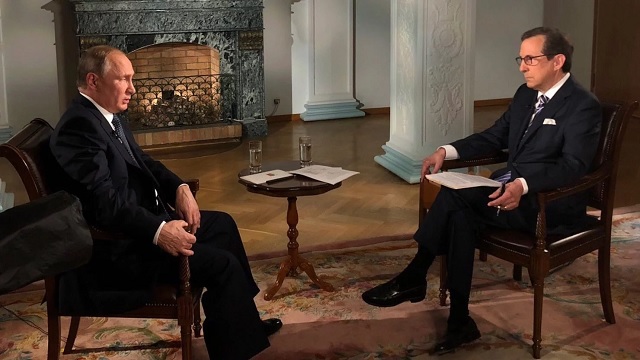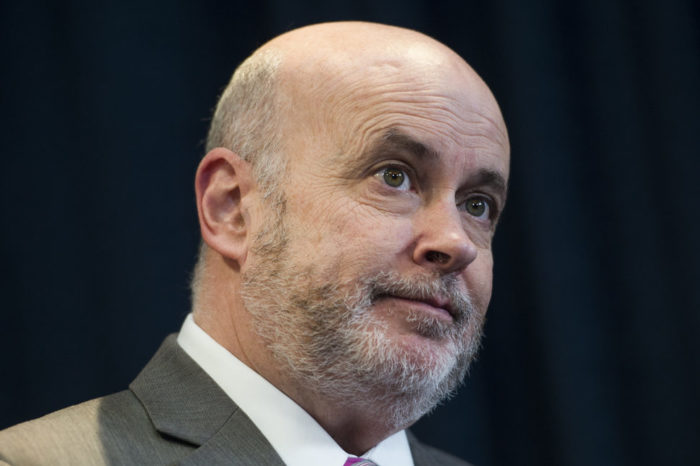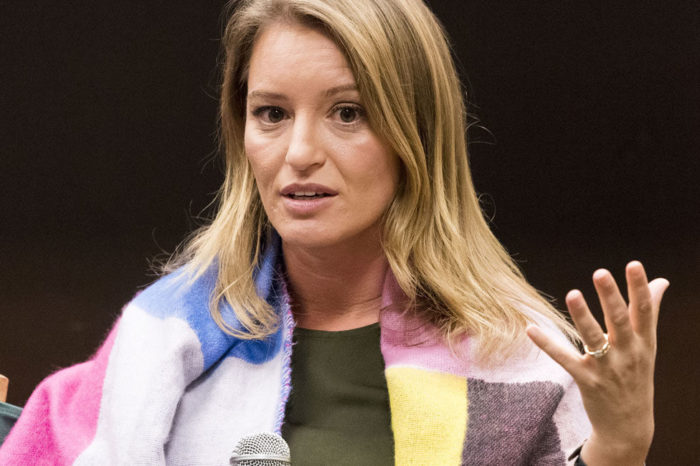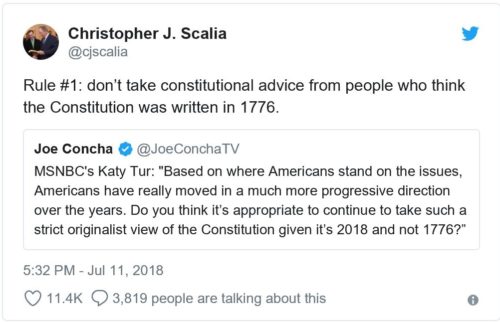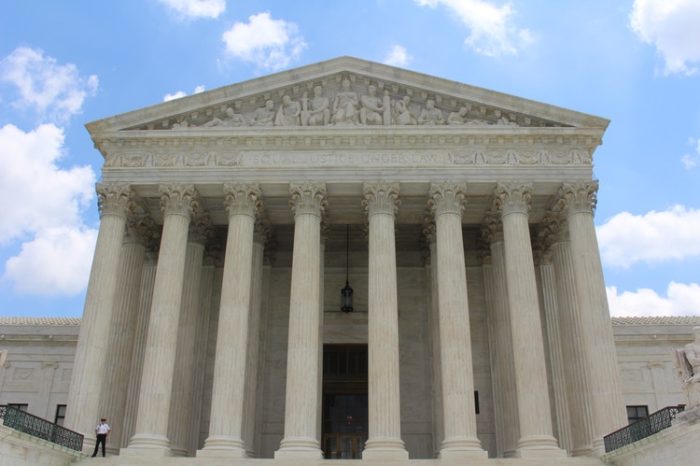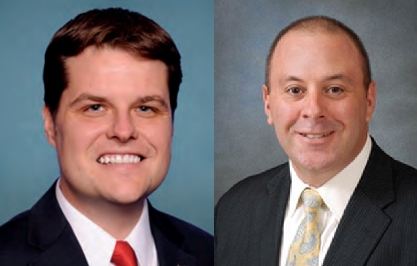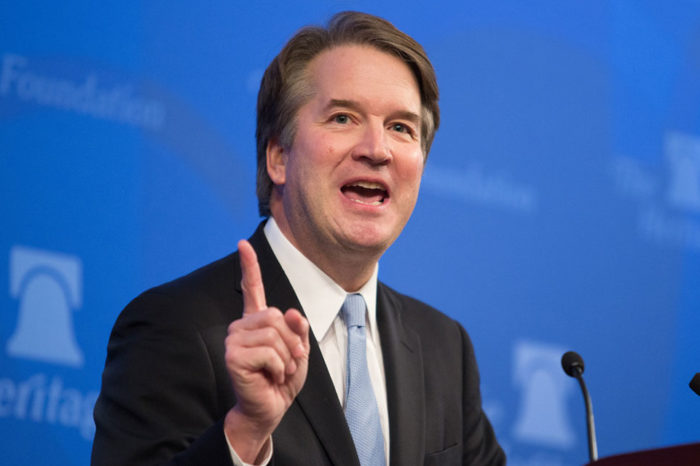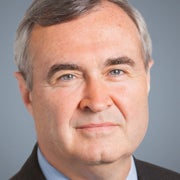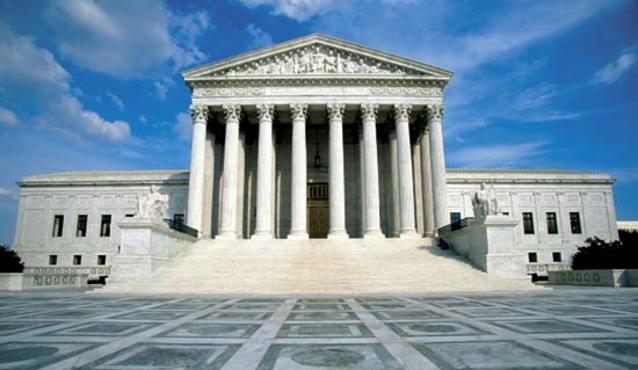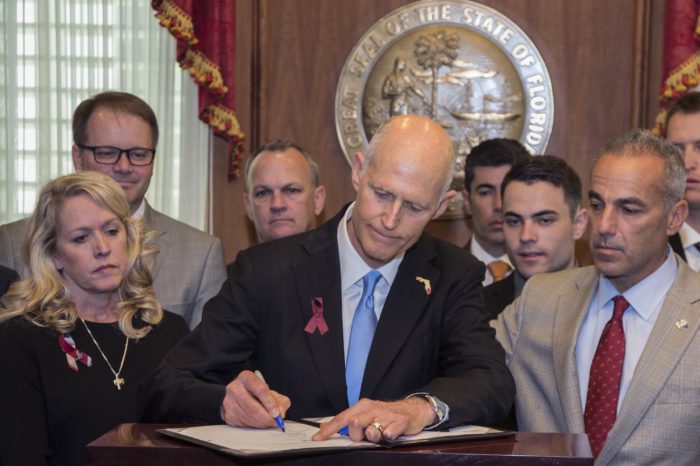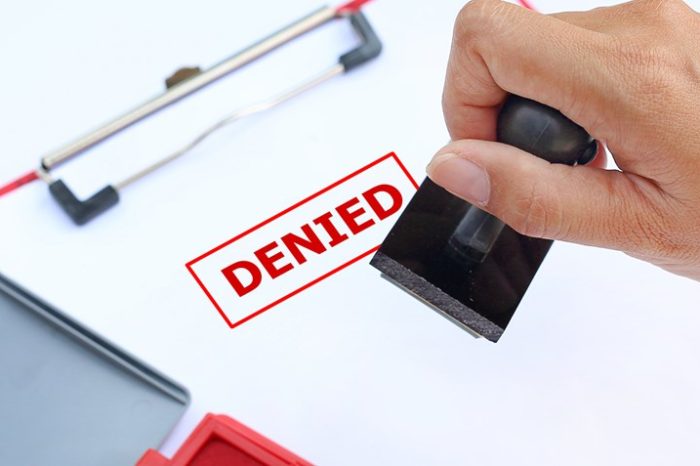Putin: ‘Do not hold Russia-US relations hostage to your political infighting!’ [Video]
Vladimir Putin answered questions from Fox News Sunday host Chris Wallace in an interview recorded in Helsinki, Finland, on July 16.
TRANSCRIPT
Fox News Sunday host Chris Wallace: President Putin, thank you for speaking with us.
I am going to get to some specifics about the summit in a moment, but let’s begin with the big picture. President Trump said in his news conference that our relationship has never been worse, but that changed a few hours ago. How has the relationship, big picture, between the US and Russia changed today?
President of Russia Vladimir Putin: You know, we should be grateful primarily to our aides, our staff who have been interacting with each other not only recently to prepare this meeting, but for months before that.
I am referring to the work of our agencies in the spheres of special concern for the United States and Russia, primarily counter terrorism.
President Trump and I pointed out today that terrorism is a bigger threat than it may seem at first glance. If the worse comes to the worst, God forbid, and terrorists lay their hands on weapons of mass destruction, the consequences will be terrible.
Our military and special services are building relations in this sphere of crucial importance for our countries. A case in point is our cooperation in Syria, even though we do not fully agree on the global goal and ways to achieve it.
However, we maintain cooperation between our militaries and special services. Their work concerns the fight against terrorism in the broad meaning of the word.
Then, the New START treaty will expire in 2021. What should we do about this? I assured President Trump that Russia is ready to extend this treaty, but we definitely need to discuss details.
We have questions we need to ask our American partners. We believe that the United States does not fully comply with this treaty, but this should be discussed at the expert level. We also talked about Iran’s nuclear programme.
We talked about what we can do to improve the situation in North Korea. I have said this before, but I will repeat that I believe President Trump has done a great deal to promote the settlement of this conflict.
However, we will need international guarantees to attain complete denuclearisation of the Korean Peninsula. Russia is ready to contribute towards this to the extent that will be required.
Therefore, it can be said that we can see eye to eye on these and several other issues of concern to us. This allows us to say that much has changed for the better during our meeting today.
Chris Wallace: But do you see the summit as a turning point, an end of the effort by the West in recent years to isolate Russia?
Vladimir Putin: And you can see that these efforts did not work out, and they could not have worked out, considering Russia’s size and importance in the world, including in the sphere of global security, as well as in the economy if we consider at least the energy component of the global economy.
I believe that our understanding of the things that unite us and the things we should work on together is prompting us to admit that we must stop fighting each other and should instead join forces to deal with common problems in the fight against shared concerns, so as to overcome these concerns. Therefore, I believe that this is the beginning. It is a start. I believe we have given a good start to this today.
Chris Wallace: Mr President, one of the issues that is standing in the way of more progress, as you know, are the allegations of Russian interference in the US election. You have repeatedly said, and you said again today, that this was not the action of the Russian state, that if there was anything, it was patriotic Russian individuals. I have here the indictment that was presented on Friday from the Special Counsel Robert Mueller that says that twelve members of Russian military intelligence, the GRU, and they talk specifically about units 26165 and 74455, they say – you smile, let me finish – they say that these units were specifically involved in hacking into Democratic Party computers, stealing information, and spreading it to the world to try to disrupt the American election. May I give this to you to look at, sir?
Vladimir Putin: Let me start my answer to your question from a different angle. Look, everyone is talking about Russia’s alleged interference in your election campaign. I said this in 2016, but I would like to repeat this today, and I would like the American audience to hear my reply.
First, Russia as a state has never interfered in the internal affairs of the United States, let alone elections.
Chris Wallace: But sir, this is the indictment, I have twelve names here. It talks about specific units of the GRU, Russian military intelligence. Is the GRU not part of the Russian state?
Vladimir Putin: I will answer your question, have patience and you will hear a comprehensive answer. As for interference in the internal affairs of the United States. Do you really think that it was possible to influence US elections from Russia, to influence the choice of millions of Americans? This is ridiculous.
Chris Wallace: I am not asking whether they influenced, I am asking whether they tried.
Vladimir Putin: I will answer you now, if you bear with me, you will hear my answer. This was the first thing.
Second, I said this in 2016, and I want to repeat it again now. What was the problem? It concerned the hacking of a Democratic candidate’s email. Did this attack involve manipulation with facts? This is very important. I want the Americans to hear this. Did anyone manipulate with the facts or plant fake information? No.
The hackers involved – don’t worry, I will get back to your question – read that candidate’s emails and learned about manipulations within the Democratic Party in favour of one of the candidates. That is all.
As far as I remember, the leaders of the party’s executive bodies resigned. It means that they admitted this fact. I believe this is the crucial thing. You must stop manipulating public opinion and apologise to the voters for what was done, rather than keep looking for those who allegedly did this.
Now back to these issues. I said at the news conference, and I can repeat this now. Mr Mueller…
Chris Wallace: You are indicating that they stole real money, not counterfeit money. So are you saying that this ok, the fact that they took from the DNC, from John Podesta, it was their real e-mail, so it is ok to hack, and spread this information out and interfere with the election?
Vladimir Putin: Listen to me. There is nothing false in the information at my disposal. Everything it says is true, and the leadership of the Democratic Party has admitted it. This is the first thing.
Second, if you do not like my answer, please say so, and I will say no more. But if you want the American people to know my opinion, then have patience.
As for the specific accusations, Mr Mueller has brought charges against a Russian company, a small business working primarily in the catering industry. I have spoken about this before.
This company has hired American attorneys to protect its name in an American court. This court has not yet found any trace of interference by this company.
Do you know about this or not? Let the millions of Americans know about this as well. Now for the [Russian] citizens mentioned here. We have a treaty on mutual legal assistance in criminal matters, a valid treaty that was signed in 1999. It has been applied quite effectively. I cited an example of its effective application. Why cannot Mr Mueller and his colleagues…
Chris Wallace: I’m not trying to interrupt or be disrespectful.
Vladimir Putin: You are doing this.
Why cannot Mr Mueller send an official request to us within the framework of this treaty? Under this treaty, Russian investigators could question all the individuals that our American colleagues suspect of something. I have said this before. Why has none of this been done to this day? This is surprising. Nobody has sent an official request to us…
Chris Wallace: But the indictment just came. Let me just say. I don’t want to interrupt but I want to ask one question and move on to other subjects. Why do you think Robert Mueller issued this indictment three days before you and President Trump met here at the summit?
Vladimir Putin: This does not concern me. These are your internal political games. Do not hold Russia-US relations hostage to your political infighting.
By the way, it is obvious to me that this case has been used for internal political fighting, and this is nothing to be proud of for US democracy. Using law enforcement agencies for political infighting is inadmissible.
I have said what I think regarding this fact. Please, send us an official request…
Chris Wallace: Do you think that Mr Mueller is trying to sabotage the relationship?
Vladimir Putin: I do not want to assess his work. It is not for me to do this. Let the Congress which appointed him do this. By the way, the court is not sure that Mr Mueller has been appointed as special counsel in full compliance with American legislation.
According to the court, he was appointed to his current position in violation of the law. But it is no concern of mine. You deal with it yourself. As for suspicions and charges, a procedure is stipulated in the above treaty which you can use to send requests.
Chris Wallace: May I move on, sir?
Vladimir Putin: Of course.
Chris Wallace: I heard the news conference today. My opinion was a bit curious because President Trump spent more time criticising the Democrats and asking about the Democratic server that he did in criticising Russia and asking about the GRU. There are many theories in the United States about why President Trump is so reluctant to criticise you, and I’d like to ask you about a couple of them. One is that you have something on him, kompromat. The other is that as a skilled politician and a former KGB officer you know how to play him, you use phrases like “fake news” and “deep state.” And my question is: do you find President Trump easy to deal with?
Vladimir Putin: First, about why we talked as cultured people should. Why does this come as a surprise? Did we need to meet, go to Helsinki, Mr Trump across the ocean and I from Moscow to abuse and throw mud at each other? This is not how things are done in the global diplomatic practice.
There is no need to meet if you only want to quarrel and worsen relations. We met to find ways to improve our relations, not to destroy them completely. This is the first part of my answer.
The second part concerns the compromising materials you asked about. No, we have no compromising materials and cannot have any. I do not want President Trump to take offence, and I do not want to sound impolite, but we had no interest in him until he announced his decision to run for president.
He is a wealthy man, but there are many wealthy people in the United States. He was in the construction business and organised beauty pageants. Nobody ever thought he would be elected president. He never indicated that he had any political ambitions. So the idea of compromising materials is nonsense.
As you know, I said at the news conference that 550 American business leaders visited St Petersburg [International Economic Forum], and every one of them is more important than Mr Trump used to be. Do you think that we put pressure on each of them, that our secret services shadow them, spy on them and tap their conversations?
First, we do not do this, unlike you. Do not judge others by yourself. Second, we do not have the funds, resources or personnel to spy on everyone. This is just not in our plans. It is simply impossible, and we certainly did nothing of this kind with regard to Mr Trump.
Chris Wallace: I’d like to ask you a couple of specific questions about NATO. If NATO were to move to add either Ukraine or Georgia to the Alliance, how will you respond?
Vladimir Putin: The situation in NATO is as follows. I know about the decision-making mechanism used in the bloc. Of course, its decisions are taken by consensus, but before taking them, individual NATO members can be contacted on a bilateral basis, as it was done with regard to Poland and Romania, which now host elements of the US strategic missile defence system.
This poses a direct threat to our national security. Therefore, the advancement of NATO infrastructure towards our borders poses a threat, and our reaction to it will be extremely negative.
Chris Wallace: Secondly, there are two major NATO exercises later this year: Anaconda and Trident Juncture. Did you and President Trump discuss those and did he give any indication as he did with Chairman Kim of North Korea when he agreed to stop participating in war games. Did he give any indication that the US might not participate in these two NATO operations?
Vladimir Putin: No, we did not discuss this, although it is an issue of concern for us. The NATO infrastructure is expanding, and the number of NATO servicemen in the regions where there should not be any has increased by 10,000 people.
Under the Founding Act on relations between Russia and NATO, there must be no servicemen there. It is certainly a destabilising factor. We must take it into account in our relations. But President Trump and I did not talk about this today.
Chris Wallace: I want to ask you about Russia’s involvement in Syria. According to independent monitors, since the civil war began in 2011, more than a half a million people have been killed, and Russia has bombed civilians in Aleppo and Ghouta. No qualm about killing innocents?
Vladimir Putin: A war is in progress and this is the most horrible thing that can happen to humankind. Of course, victims are inevitable. And people always ask, who is to blame? As I see it, it is the terrorist groups, which have destabilised the country, that are to blame. I mean ISIS, Jabhat al-Nusra, and the like. They are the true culprits.
This is exactly what the US military reply, when they deliver strikes at civilian facilities in Afghanistan, Iraq or some other country. On the whole, although this may seem debatable to someone, but on the whole this is true.
As far as Syria is concerned, US aircraft delivered very serious strikes at the city of Raqqa. Earlier today, President [Trump] and I talked about the need to undertake efforts for humanitarian operations. I think we managed to make some headway in this direction. I am looking forward to the implementation of the plans we discussed today.
Chris Wallace: But the UN commission that is investigating Syria says and I quote their words: there was deliberate targeting of civilians by Russian pilots flying Su-24 and 34 military aircraft.
Vladimir Putin: Everything is to be verified and assessed.
But I would like you to return to what I have just said about Raqqa. The aircraft that were attacking this city were piloted by American…
Chris Wallace: We cannot talk about Aleppo and Ghouta?
Vladimir Putin: Well, we can talk about Aleppo and Ghouta, but then let us talk about Raqqa too. Don’t snatch some things out of their context and forget about other things. All right?
Chris Wallace: I do not think that there has been bloodshed in Raqqa. That there were hundreds of thousands of people who were killed in Aleppo and in Ghouta, and in the entire civil war – half a million people. By some estimates, 20,000 children have been killed by the Assad regime and his supporters in Moscow. Are they terrorists?
Vladimir Putin: You are completely wrong; I wish you were familiar with the real situation in Syria. A lot of civilians died in Raqqa. Raqqa has been wiped off the face of the earth. Now it is a solid mass of ruins resembling Stalingrad during World War II, and, of course, there is nothing good in all this.
To reiterate: it is the people guided by their terrorist beliefs and using civilians as hostages who are to blame.
Chris Wallace: At the G7 Summit, President Trump reportedly told the other leaders that Crimea might as well be Russian because everybody there speaks Russian. Did he give you any indication that at some point, not today, but at some point he might recognise Russia’s annexation of Crimea, or lift sanctions, or move to bring Russia back into the G7, now the G8, all of which happened as a result of the annexation of Crimea?
Vladimir Putin: Let me make a correction: when Crimea joined Russia it was not an annexation, since the only form of democratic expression is the expression of the will of the people living within a specific territory.
People in Crimea came to the referendum and voted for independence and joining the Russian Federation. If this is an annexation, what is democracy? This is my first point.
My second point is that we are aware of President Trump’s position that Crimea is part of the Ukrainian state, as he has repeated today, while I articulated our position which is close to what I have just told you. Having said that, I think we should leave our discussion of Crimea at that.
Chris Wallace: All right, we are running out of time anyway. Let’s move on.
Last year Defence Secretary Mattis said that Russia is the greatest threat to the United States. And he has since made it clear, an even greater threat than terrorism. In March you introduced a new generation of Russian missiles, including what you called an invincible missile. You said that it could evade, defeat all of our missile defences, and you even released a video that showed that super missile flying over the United States and hitting Florida very near where President Trump’s estate is at Mar-a-Lago. Aren’t you escalating the arms race, and aren’t you being deliberately provocative?
Vladimir Putin: As for the video, it did not indicate that the missile targets US territory. You have to watch it more carefully. This is the first thing I wanted to say.
Second, all our strike systems target…
Chris Wallace: It shows Florida.
Vladimir Putin: No, it did not say Florida. This is not true. Watch it one more time, and pay more attention. It did not say Florida. All it made clear was that the missile was headed to the other side of the globe.
Chris Wallace: No, but you can see it on the map.
Vladimir Putin: No, you could not see this on the map. Just pay more attention when you watch instead of scaring your people with threats that do not exist. Yes, watch it carefully. Do you want me to give you this video as a gift?
As for the strike systems, let me remind you that they did not emerge out of nowhere. They emerged as a response to the unilateral withdrawal by the United States from the ABM Treaty. We warned our American colleagues right from the outset that we were not ready to build a missile defence system, since we did not believe in its effectiveness, and it was too costly. Instead we said that we would do everything to penetrate this shield.
As I have said on numerous occasions, but let me repeat it for the American audience, the response was the following: “The missile defence system we, the Americans, are building is not created against you, and you can do as you please. We will proceed from the premise that it is not against us.” In 2003 or 2004 I made a public statement about one of these systems. Our American partners did not respond in any way.
But now we have done it and showed what we have. That being said, this is a matter of negotiation, and we hope, and I hope very much that we will be able to come to solutions in terms of strategic stability that would be acceptable to both sides, including regarding short- and intermediate-range missiles.
Chris Wallace: I have limited time, I would like to ask you about the alleged INF violation, but I want to move on and ask you three final questions about Vladimir Putin. When you were first elected in the year 2000, you were portrayed as a democratic reformer, you talked about the value of European culture and you did not even rule out becoming a part of NATO. What happened?
Vladimir Putin: First, nothing has changed about me. I am the same as I was then. I became President of Russia when I was a grown man, and a person’s predisposition and fundamental beliefs do not change at that age.
But we have to react to what is happening around us. First, the two waves of NATO’s eastward expansion. When Soviet troops pulled out of Germany, we were told that there is one thing Russians can be absolutely certain of: that NATO will never expand beyond Germany’s borders.
There were two waves of expansion, contrary to our objections of principle. They did not give a damn about our objections. We asked you not to withdraw from the ABM Treaty, but the United States pulled out of it unilaterally.
You disregarded our calls not to do so and our proposals to work together. There are other examples of this kind.
Take the developments in Yugoslavia. You know that President Yeltsin was categorically against launching military operations without the approval of the UN Security Council, which is the only legal way of using the army. But nobody listened to us.
There were other factors that complicated our relationship. For example, the extraterritorial application of American criminal law, sanctions, and so on. Was it us that introduced the sanctions? No, it was you.
You asked me about Crimea and Ukraine. It was not us who organised a military coup there and used military force to change the government in violation of the Ukrainian Constitution, and it was not us who handed out pies to the rebels. We are aware of the complicated processes underway there, but this is not the way to resolve them. And where is this happening? Right at our doorstep.
So, nothing has happened to me. I would like to know what has happened to you.
Chris Wallace: You say nothing happened to you, but I need to ask you domestically, not internationally, domestically inside Russia. Why is that so many of the people that oppose Vladimir Putin end up dead or closed to it: former Russian spy and double agent Sergei Skripal, the victim of a nerve agent attack in England, Boris Nemtsov, a political opponent gunned down near the Kremlin, investigative reporter Anna Politkovskaya, murdered in an apartment building. Why is that so many people that were political enemies of Vladimir Putin are attacked?
Vladimir Putin: First of all, we all have many political opponents. President Trump has many political opponents too. Take any person involved in state…
Chris Wallace: But they do not end up dead.
Vladimir Putin: Sometimes they do. Haven’t Presidents been killed in the United States? Have you forgotten about that? Where was Kennedy killed, in the US or in Russia? And what happened to King? As a matter of fact, what happens during clashes between the police and civil society activists, for example, from ethnic African-American organisations? Does this happen in Russia or in the US? This is all taking place in the US. You have many challenges within your country.
It is a sad truth that Russia has not been spared criminal activity. In fact, the Russian state is still in the making, and unfortunately there are many manifestations of this kind. We are fighting this, and hold perpetrators to account.
You have mentioned the Skripals. We want to see the documents on this case, to get a glimpse of any materials. No one has said anything specific, just as with the accusations against Russia of meddling in the political processes in the US. We have not seen a single document.
We now learn that two more people have suffered from the toxic agent referred to as Novichok, but I had never even heard their names. Who are these people, how were they hurt and why?
Chris Wallace: Supposedly they picked up the bottle that was used to attack Skripal. Can I ask you one last question, sir?
Vladimir Putin: No, let’s stay on the subject. What bottle? Who picked it up? Where? What was its chemical composition? Or can it be that these people suffered from something else? Can it be that you have to look inside Great Britain to find the cause?
No one wants to get to the bottom of this issue. These are absolutely groundless accusations. Why all this? Why make our relations worse? We want to build a proper relationship with Great Britain as well.
Chris Wallace: Finally, I know one of the reasons that you wanted to do this interview was so that people in the United States and the West could get a better understanding of the real man. You are often portrayed as a strongman, an autocrat, a person who is a symbol of Russia’s strength. Are those fair characterisations of you, sir?
Vladimir Putin: I do not claim to be a symbol of Russia. But from the point of view of current law, the national flag, the anthem, and the presidency itself are to a certain extent the symbols of the country – and not only those of Russia but also of any other country.
I hope that my work also reflects what Russia is engaged in, what it is concerned about, and what it is ready to do to normalise our relations with all countries, including, of course, with such a great country as the United States of America.
RELATED VIDEO: Russia describes ‘invincible missile’ – BBC News.
EDITORS NOTE: This transcript first appeared in Kremlin.ru.

